Effect of ultraviolet B radiation on the production of polyphenols in the marine microalga Chlorella sp.
DOI: https://doi.org/10.3856/vol40-issue1-fulltext-11
Abstract
Marine algae are an important source of antioxidant compounds (phenols and polyphenols), generated as defense mechanisms against stress factors (UV radiation, temperature, herbivory). The aim of this study was to evaluate the strategy of adaptation to the effect of ultraviolet B radiation (UV-B, 280-315 nm) in the marine microalga Chlorella sp. through, the production of polyphenols and total antioxidant capacity. Chlorella sp. cultures were exposed to UV-B radiation (470 μW cm-2) over increasing time periods. We evaluated the total antioxidant capacity DPPH, total polyphenols, chlorophyll-a and b, and cell densities in exposed and unexposed cultures. The results indicated that UV-B caused a decrease in cell density in cultures irradiated for the first time (1st stage), with a significant increment (P < 0.05, lower than the control) in the 2nd and 3rd stages only through the 4th stage (day 7), corresponding to a dose of 16,920 J m-2. The production of total phenols increased significantly (P < 0.05) for the IVth extract with respect to the control, confirming that the exposure to UV-B caused a reaction in the microalgae, generating higher levels of photoprotector substances. Total antioxidant capacity and total polyphenols did not show a significant correlation (R2 = 0.72) due to the lack of specificity of the DPPH assay for this type of antioxidant, but a very similar trend was observed. Although the amounts of antioxidant compounds were not high, their synthesis corresponded to the response developed by the microalgae Chlorella sp. against UV-B radiation. The exposure of the microalga Chlorella sp. to incremental doses of UV-B radiation, repeated over time, caused a response in the form of increasing antioxidant defenses.


